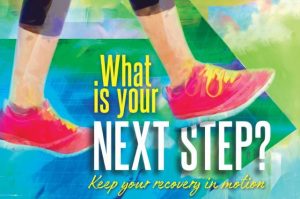Sierra Tucson Alumni Retreat (S.T.A.R. 36)
Resident & Family Member Alumni are cordially invited to attend the annual
Sierra Tucson Alumni Retreat, S.T.A.R. 36,
Celebrating 36 Years of Reconnecting & Renewing Our Recovery!
Alumni Retreat Schedule
| Thursday, October 19 | |
| 10:00 a.m. - 5:30 p.m. | Registration & Bookstore open |
| 10:00 a.m. – 5:30 p.m. | Time to relax, schedule a spa service, pool time, hiking, connect with others, etc. |
| 1:00 p.m. - 2:00 p.m. | Yoga Stretch |
| 5:30 p.m. - 6:30 p.m. | Dinner |
| 6:30 p.m. - 8:00 p.m. | Getting Connected & Retreat Kickoff |
| Friday, October 20 | |
| 6:00 a.m. - 8:00 a.m. | Hiking in the Catalinas |
| 7:15 a.m. - 8:15 a.m. | Support Group Meeting & Meditation |
| 7:45 a.m. - 9:00 a.m. | Breakfast |
| 8:30 a.m. - 3:30 p.m. | Registration & Bookstore open |
| 9:15 a.m. - Noon | Morning Presentations |
| Noon | Lunch |
| 1:15 p.m. - 2:30 p.m. | Afternoon Presentation |
| 4:00 p.m. | Buses depart to Sierra Tucson for campus visit and alumni support group meetings |
| 6:00 p.m. | Buses depart Sierra Tucson |
| 6:30 p.m. | Dinner at Westward Look |
| Saturday, October 21 | |
| 6:45 a.m. - 8:00 a.m. | Nature Walk at Westward Look |
| 7:15 a.m. - 8:15 a.m. | Support Group Meeting & Meditation |
| 8:30 a.m. - 5:00 p.m. | Bookstore open |
| 7:45 a.m. - 9:00 a.m. | Breakfast |
| 9:15 a.m. - Noon | Morning Presentations |
| 11:30 a.m. | Lunch |
| 1:15 p.m. - 2:30 p.m. | Afternoon Presentation |
| 3:00 p.m. - 5:30 p.m. | Time to Relax |
| 5:30 p.m. - 8:00 p.m. | Dinner & An Evening of Improv |
| Sunday, October 22 |
|
| 7:15 a.m. - 8:15 a.m. | Support Group Meeting & Meditation |
| 8:30 a.m. – 10:00 a.m. | Group Activity & Closing |
| 10:00 a.m. - 11:00 a.m. | Brunch |
Registration
The Retreat cost is $250 per person. This includes workshops, presentations, entertainment, meals from Thursday reception through Sunday brunch, transportation Friday to and from Sierra Tucson, and gift bags to take home.
Hotel Accommodations
All Retreat activities, with the exception of Friday afternoon's activities, will be held at the Westward Look Wyndham Grand Resort and Spa, which has extended discounted rates ($159 single/double occupancy and $169 for triple/quad occupancy plus tax & resort fee) until September 27, 2023 or once room block has filled. Reservations received after September 27, 2023, are subject to availability at the Resort’s prevailing rate.
To make a reservation, you can either do so online or call by contacting Westward Look Resort's group reservation specialist Hilary Lietz at (520) 917-2465, and be sure to let them know you are with the Sierra Tucson Annual Retreat. Westward Look has sold out in the past, so it is a good idea to reserve your room as soon as possible! When making reservations, ask about the cancellation policy so as not to be charged a night's stay if you need to cancel.
Wyndham Grand Westward Look Resort & Spa > Property Map
Click the link below for a list meals being served. There is also a restaurant onsite, as well as a Whole Foods, Safeway Market, Sprouts and Trader Joes just minutes away. Westward Look Resort rooms include a mini refrigerator.
Sierra Tucson Annual Retreat Menu 2023
A 10% discount is available on spa services at the Westward Look Sonoran Spa (520) 917-2467. It is highly recommended that you book your spa services as soon as possible to ensure availability. Be sure to mention that you are with the Sierra Tucson Annual Retreat to receive the discounted rate.
Please note that there will NOT be shuttle/bus service between other hotels and Westward Look; you will need to provide your own transportation.
Presentations
Transformation--in the Moment--not Later
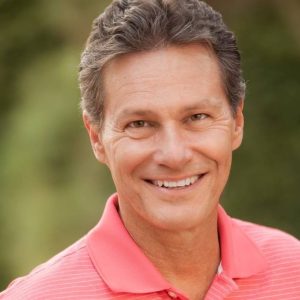
George Daranyi, J.D.
William James said: "In the twinkling of an eye, in a moment of time, all will be changed."
Most of us have heard some version of this, somewhere. We probably don't believe it; or, believe it does not apply to us or our circumstances. We may view it as impossible. Yet, I have witnessed "transformation--in the moment" countless times in my thirty five years of working with patients and others who search for some kind of change that will reduce suffering. During this facilitated workshop/lecture, I will provide some additional context and share some insights and experiences that I hope will help make healing and transformation more available and accessible to you. Now--not later. After all, remember what Arnold Bennett said:
"We shall never have any more time."
George celebrated 35 years of recovery this year. He has worked with thousands of men and women in and out of the mental health and recovery worlds for more than 30 years. He combines elements from his own recovery, his legal practice, his work with The ManKind Project and his work in the mental health field together with poetry, literature, and facilitation to create memorable transformational experiences. He devotes some of his time to the continuing development and delivery of the “Desert Wisdom” experience for men. The current focus is to help men integrate the deep masculine with the sacred feminine.
Existential-Humanistic Psychology
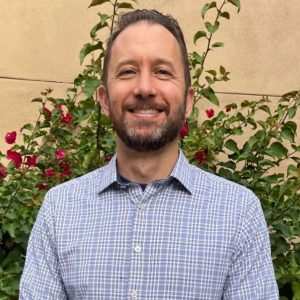
Chris Bradshaw, MFA, MA, LAC
How am I presently living my life in this moment? How am I willing to live my life in this moment? What is the meaning and purpose of my life? What is an empowering meaning of my suffering? How can my suffering make me a more skillful person? What does it mean to be fully and experientially human, and what does this imply about living a vital and fulfilled life? What are my real needs as a human being and how can I satisfy them in a way that benefits others, my work in the world, and myself at the same time? How do we face the often paradoxical givens of existence: freedom/limits, acceptance/change, constriction/expansion, meaning/mystery, separateness/connection, and others.
In this presentation, Chris Bradshaw will guide us through a discussion of the theory, research, and application of Existential and Humanistic psychologies with a particular emphasis on the work of two of his teachers: Dr. Scott Barry Kaufman and Dr. Kirk Schneider. We will seek an experience of these and other questions. Chris is a licensed counselor and PhD candidate in clinical psychology specializing in existential and humanistic psychology and therapy.
Chris maintains that the most important factors in effective psychotherapy are when the therapist and client: form a strong alliance (bond), create a sense of meaning and hope, collaborate, understand clearly how therapy will work, repair ruptures to the alliance, and buy into the process. He believes that empathy as well as competence in therapeutic approaches which span a range of styles and approaches are often important for therapists. This is supported by the “common factors” research in psychotherapy.
A licensed counselor, Chris tailors his approach to the client, drawing from several modalities, including Existential-Humanistic (EH), Cognitive Behavior Therapy (CBT), mindfulness-based/contemplative, Positive Psychology (PP), Eye-Movement Desensitization Reprocessing (EMDR) therapy, Motivational Interviewing (MI). Chris is currently engaging Somatic Experiencing training and is able to utilize some aspects of that modality in his practice. Chris has completed all core courses and examinations for the Ph.D. in clinical psychology and is currently in the dissertation phase.
Chris is certified as a foundational-level EH Psychotherapist from the Existential-Humanistic Institute (EHI), is currently engaging advanced certification at EHI, and completed a concentration in EH practice at Saybrook University, a leading non-profit university in EH Psychology and Psychotherapy. For all the modalities Chris utilizes, he has engaged training at the master’s and doctoral levels as well as through top-notch professional development training and his own passionate reading and self-study. For example, he trained in CBT with the Beck Institute and in Motivational Interviewing from a MINT-certified trainer. Chris is co-editing and writing a piece for the book “Existential Psychology in Cross-Cultural Contexts” forthcoming from University Professors Press. He is on the organizing/planning committee for the upcoming 4th World Congress of Existential Therapy to be held in Denver, Colorado, in June 2026.
A lover of literature and art, Chris earned a Master of Fine Arts degree from the School of the Art Institute of Chicago. He also holds an MA in Clinical Psychology from Saybrook. In 2010, he joined AmeriCorps and worked with at-risk youth in Phoenix. In 2011, he began his journey as a counselor, facilitating a wide range of group therapies and psychological education. For seven years, Chris served as lead counselor and then manager of large outpatient clinics in Phoenix and Tucson serving 850 clients with a range of substance use and mental health treatment needs. He supervised an interdisciplinary team of 25 employees.
A Somatic Resiliency Approach to Trauma Recovery
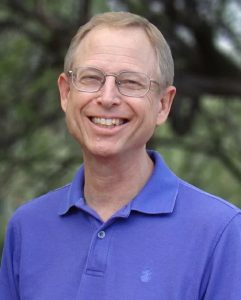
James Seymour, MD
Somatic Resiliency is an approach to trauma recovery which is a synthesis of ideas developed over the years by a number of clinicians and researchers in the fields of somatic psychology, somatic therapies, neuro-regulatory models, and positive psychology. Dr. Seymour will present a way for individuals to expand on what they have been learning in trauma recovery therapy. Starting some simple daily practices over time contributes to improved nervous system regulation which strongly increases resiliency to dealing more effectively with life's continued challenges. These practices are consistent with evidence based - treatments which include focusing on strength and resources, mindfulness, and changes in how we view ourselves. These practices can become daily life long habits which help us keep recovery "moving forward.”
James Seymour, MD, joined Sierra Tucson in 2010. Upon receiving his medical degree from the University of Tennessee and completing his psychiatric residency at the University of Virginia in 1987, Dr. Seymour trained for several years in Intensive Short-Term Dynamic Psychotherapy (ISTDP).
Dr. Seymour was an officer with the United States Public Health Service, where he served as mental health director of the Tucson Area Indian Health Service (IHS). For 10 years, he served as the assistant medical director of a residential behavioral health and substance abuse program focused on the healing of mind, body, and spirit. Dr. Seymour is board certified by both the American Board of Psychiatry and Neurology and the American Board of Addiction Medicine. Additionally, he is a Somatic Experiencing® Therapy practitioner.
Dr. Seymour’s areas of expertise include trauma recovery, addictions, cognitive behavioral therapy (CBT), and somatic mind-body therapies. Dr. Seymour believes strongly in the resilience of the human spirit and views the role of the psychiatrist as assisting the person in removing obstacles to the natural healing and recovery process.
Dr. Seymour approaches psychological and post-trauma symptoms as the natural nervous system’s response to trauma, rather than a disease or disorder, with a primary focus on increasing the capacity for better nervous system regulation, improvement in navigating interpersonal relationships, and mindfulness to support and encourage positive results in each individual. In addition, Dr. Seymour believes that those individuals with a serious mental illness need trauma-informed care and individualized attention to help heal the emotional wounds which are invariable consequences of having to deal with problems such as Schizophrenia and Bipolar Disorder.
Bibliophiles Anonymous
Elaine Hixson-Weiss, MC, LPC
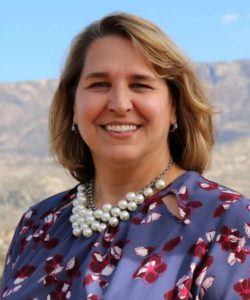
“Reading gives us someplace to go when we have to stay where we are.” Mason Cooley
Elaine Hixson-Weiss is a Licensed Professional Counselor and Bibliophile and in the past 3 decades of working with people with mental health and substance use issues has read many books to grasp concepts and experiences previously unknown. She has not always understood or personally related to details of a client’s story, yet she has been able to find ways to connect with clients using story.
In 2008 she first heard Brene Brown speak about her shame research. Brene collected stories from thousands of people over the years, her research has illuminated how the need for connection with trusted others, and empathy is critical for healing. This resonated with Elaine and since then she has continued to read and recommended reading to clients who may feel alone or lost and unsure of what to do next.
Some people read as part of their daily routine while others have not picked up a book since high school/college/graduate school. Many of us are not much into reading and yet when you came to treatment you likely received a couple of books recommended by your primary therapist. Identify how reading can impact your mental health and recovery in positive ways and improve your connection with self and others.
“Books are a uniquely portable magic.” Stephen King
Elaine Hixson-Weiss, MC, LPC, received her Bachelor of Science in Psychology from the University of Tennessee and her Master of Counseling from the University of Phoenix. She began her career in mental health at an inpatient psychiatric unit, and then moved to working in residential treatment with dually diagnosed adults. After working with both populations, she discovered her passion for working with emergent adults. Elaine has experience working with trauma, eating disorders, addiction, and co-occurring disorders. She worked for two years as a primary therapist at Sierra Tucson, and returned to Sierra Tucson in 2017 as a primary therapist.
Elaine enjoys working on a multidisciplinary team. The collaboration with others to determine how to best support the needs of residents while also assisting them in achieving their treatment goals has provided invaluable experience. She believes much of her knowledge and experience has been gleaned from individuals, family members, and other providers over the years, including the experiences they have shared with her and the chance to witness transformations firsthand. Elaine believes laughter can be a great teacher that provides an opportunity to step back and look at a situation from a different perspective, realizing that oftentimes we are doing the best we can with the knowledge we have. She will frequently reference a book or a movie that may illustrate an example of dealing with a particular situation. In her free time, she enjoys reading, watching movies, rooting for the Tennessee Volunteers during football season, and spending time with her husband and their two dogs.
Biohacking: fact or myth?
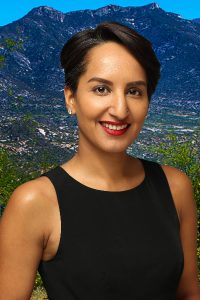
Jasleen Chhatwal, MBBS, MD, CPE, FAPA
In the world of wellness, there are many suggested methods to hack your biology. Proponents and practitioners claim practicing their methods can make you faster, smarter, happier. Some claim to even help you live longer. Are biohacks a means to take an active and intentional role in your overall health? Or are they expensive fads that end up distracting from other health-promoting behaviors?
Join our chief medical officer on an investigative journey sorting fact from myth. Together, lets find out if there is a true way to hack our biology and our well-being.
Jasleen Chhatwal, MD, has been an integral part of the medical staff at Sierra Tucson since 2018, serving as Director of the Mood Program and Associate Medical Director before being named Chief Medical Officer in January 2020. She believes each individual has a unique, authentic story, and is grateful to all those who have entrusted her with their stories.
Echoing naturalistic healing disciplines, Dr. Chhatwal believes that the human body has the inherent capacity to heal itself when provided with a nurturing environment for the mind, body and spirit. In her practice, in collaboration with colleagues from various disciplines, she attempts to recreate that nurturing environment so residents can start their journey towards a healthier, more wholesome life. As a firm believer that staff care is important to providing optimal patient care, she aims to also assist the Sierra Tucson medical staff to prioritize their own self-care.
Dr. Chhatwal’s treatment philosophy includes intervening early, providing holistic, culturally competent, gender-affirming and evidence-based care. She envisions Sierra Tucson as a healing sanctuary where intensive biological, psychological and integrative therapies help restore the vital essence of each person’s unique and authentic story.
Roleplaying Games and their Role in Recovery
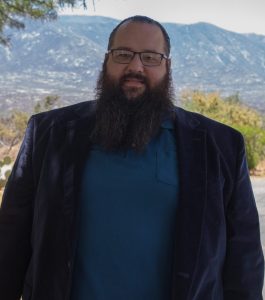
Robert Kincanon, PhD, LPC
Roleplaying Games or RPG’s have increased in their following and continued to grow into a large community of players. Many people have an idea of the most popular game, Dungeons & Dragons (D&D), since it has been around since the 70’s. Despite initial controversy surrounding the game, there is a huge gaming base with players seeking to engage in cooperative story-telling, roleplay, and making decisions based on a roll of the dice. More recently, literature is turning to examining whether RPG’s have a place within mental health intervention, and creative gamemasters are applying a therapeutic lens to approaching this form of gameplay to help individuals in recovery. ‘Roll for initiative’ on this presentation which will combine research, theory, roleplaying gameplay, and nerdiness as an innovative way to reach clients!
Dr. Robert Kincanon, Ph.D., LPC received his Bachelor’s degree in Psychology from the University of Arizona, his Master’s degree in Clinical Mental Health Counseling from the University of Phoenix, and his Ph.D. in Counselor Education and Supervision from Capella University. He began his work in behavioral health in case management for children removed by DCS, and then moved into a therapy role where he worked with children, families, and eventually adults. He has experience working with individuals with trauma, substance use disorders, those on the autism spectrum, and those under the LGBTQIA umbrella. He also completed fieldwork residencies with court-ordered adults and in the inpatient setting at Palo Verde on both inpatient and outpatient units.
Robert appreciates working in a team environment, and the support that this gives all clinicians. He is often focused on case conceptualization and meeting residents where they are at within the counseling process as a means for appropriate intervention to match resident needs. He is passionate about counselor development within supervision, especially surrounding novice counselors, and working to increase longevity in the counseling field. He values communication, collaboration, and education in any form, as these all support the continued growth and development of the clinician at every level. He is very social and enjoys engaging with peers, whether providing support or additional ideas for working with residents or talking about Star Wars, Marvel, and anything nerdy. In his free time, he enjoys watching movies/shows, and engaging in mentally stimulating gameplay including magic the gathering, and dungeons and dragons, all accompanied by his future wife and their corgi, chicken.
An Evening of Improv
Alexander Danvers, PhD
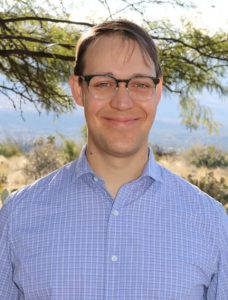
Alexander Danvers, Ph.D., is a psychologist with expertise in mobile sensing, machine learning, and psychophysiology. Dr. Danvers joined Sierra Tucson in 2022 from the U.S. Army Research Labs, where he was a civilian research scientist working on mobile sensing and artificial intelligence projects. Before that, he served as a postdoctoral researcher at the University of Oklahoma and the University of Arizona. He has taught courses in social psychology at the graduate and undergraduate levels at Oklahoma State University and Arizona State University.
At Sierra Tucson, Dr. Danvers oversees the Measurement-Based Care and Applied Neuroscience programs. His work on Measurement-Based Care involves providing customized reports on patient functioning to residents and treatment providers at Sierra Tucson, evaluating outcomes across Sierra Tucson’s various programs, and developing algorithms for predicting key treatment outcomes. His work on Applied Neuroscience involves managing a team that provides EEG brain maps, neurostimulation treatments such as TMS and tDCS, and HRV biofeedback training. In collaboration with partners in academia, he conducts research into the effectiveness of these neuroscience treatments, and into who might benefit most from specific treatment modalities. He is also responsible, in conjunction with the clinical and medical teams, for building new programming using emerging devices and technologies to treat the brain and nervous system.
Dr. Danvers received his Ph.D. in Social Psychology from Arizona State University in 2017. His areas of emphasis were applying dynamic systems theory to psychology, understanding the role of emotions in everyday life, and evolutionary approaches to human behavior. He has published over 25 scientific articles and book chapters, which have been collectively cited over 750 times. He has collaborated frequently across disciplines, including with law professors, anthropologists, philosophers, and medical doctors.
As someone who was inspired to enter science by reading popular press books, Dr. Danvers is also passionate about effective science communication. He has maintained an active blog at Psychology Today since 2018 titled “How Do You Know?” It explores details of the methods psychologists use to draw scientific conclusions, and has reached over half a million views.
Keep checking back for additional presentations!
S.T.A.R. 36 Hosts
Tim McLeod, Director of Alumni Relations & Connect365 at (913) 269-1323 or Tim.McLeod@SierraTucson.com
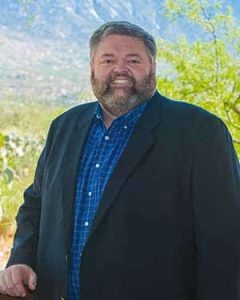
Robert Lachapelle, Alumni Coordinator & Connect365 Manager at (520) 624-4000 ext. 672 or Robert.Lachapelle@SierraTucson.com.
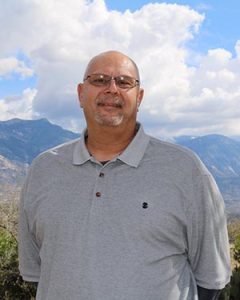
We are sorry but registration for this event is now closed.
Please contact us if you would like to know if spaces are still available.
